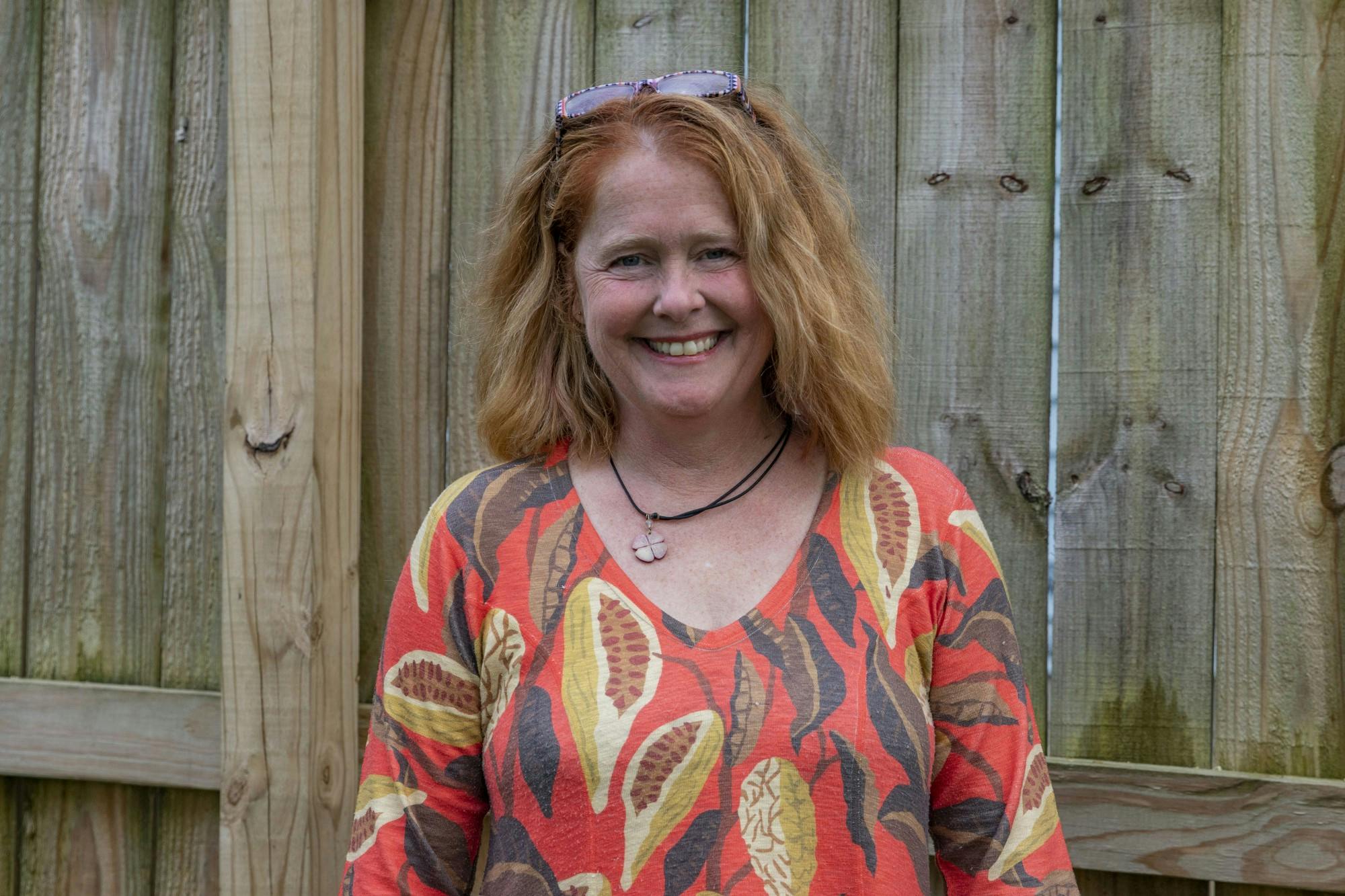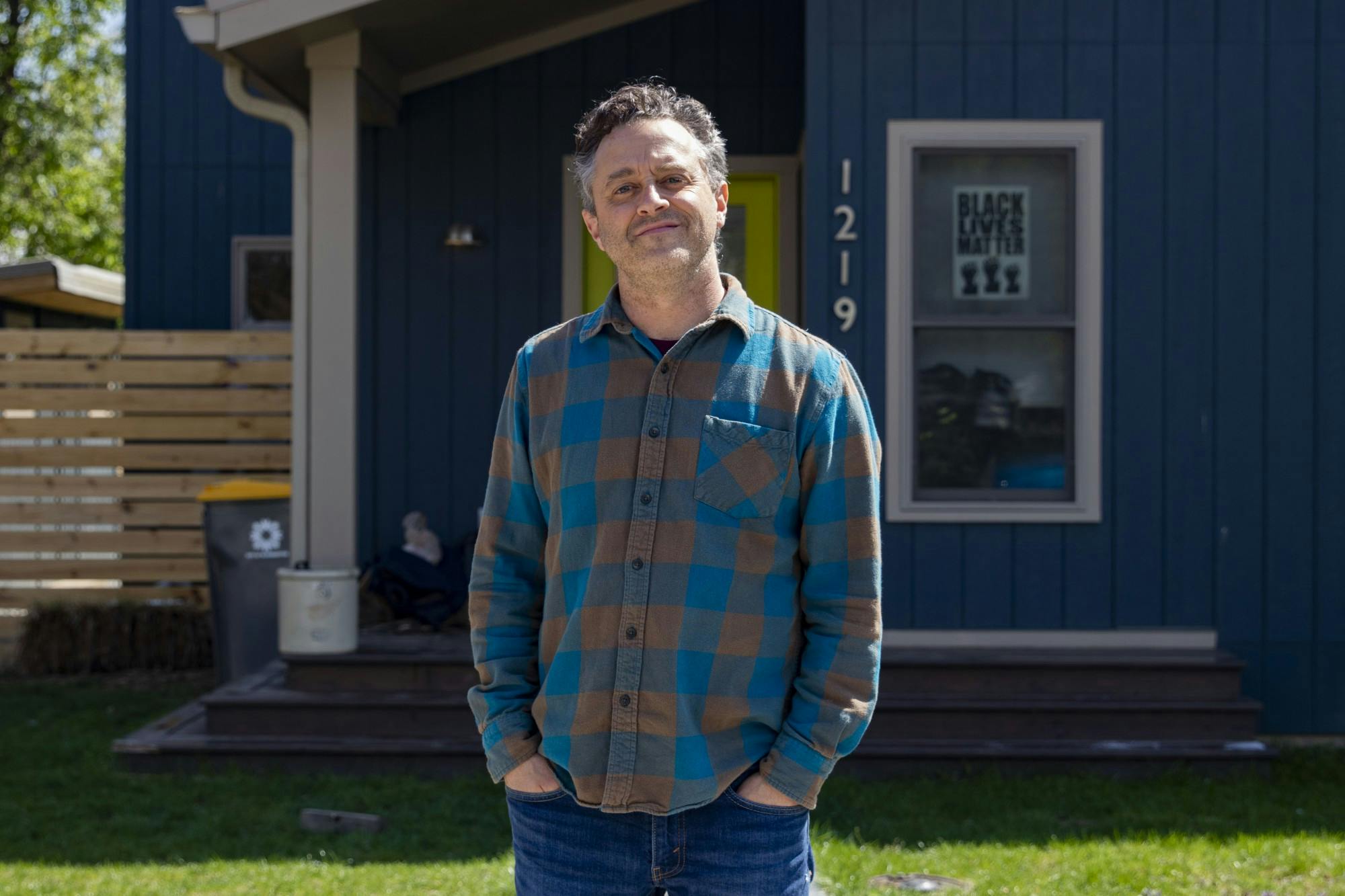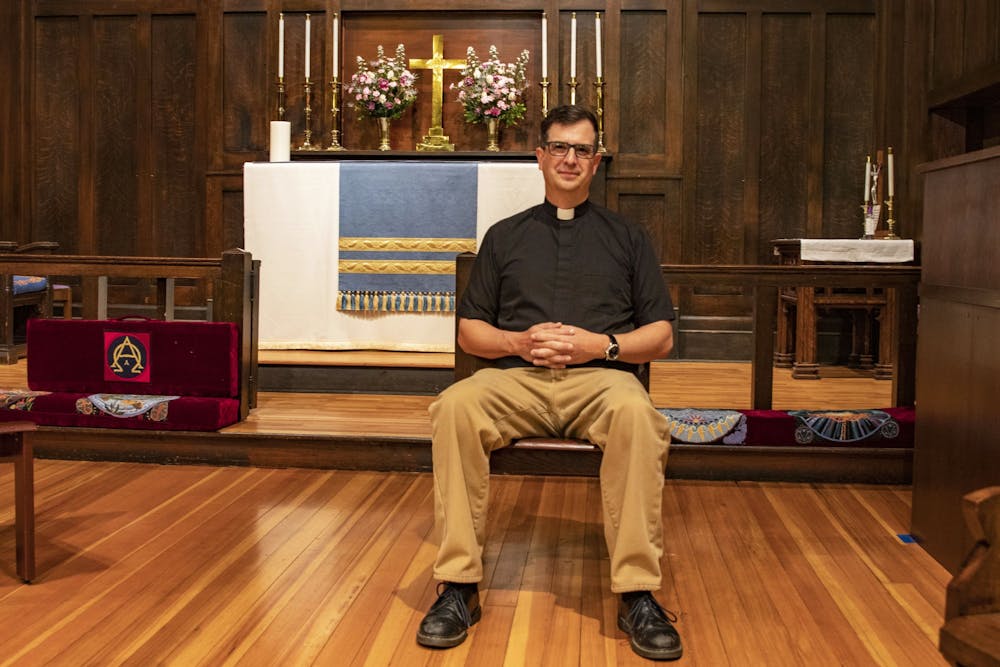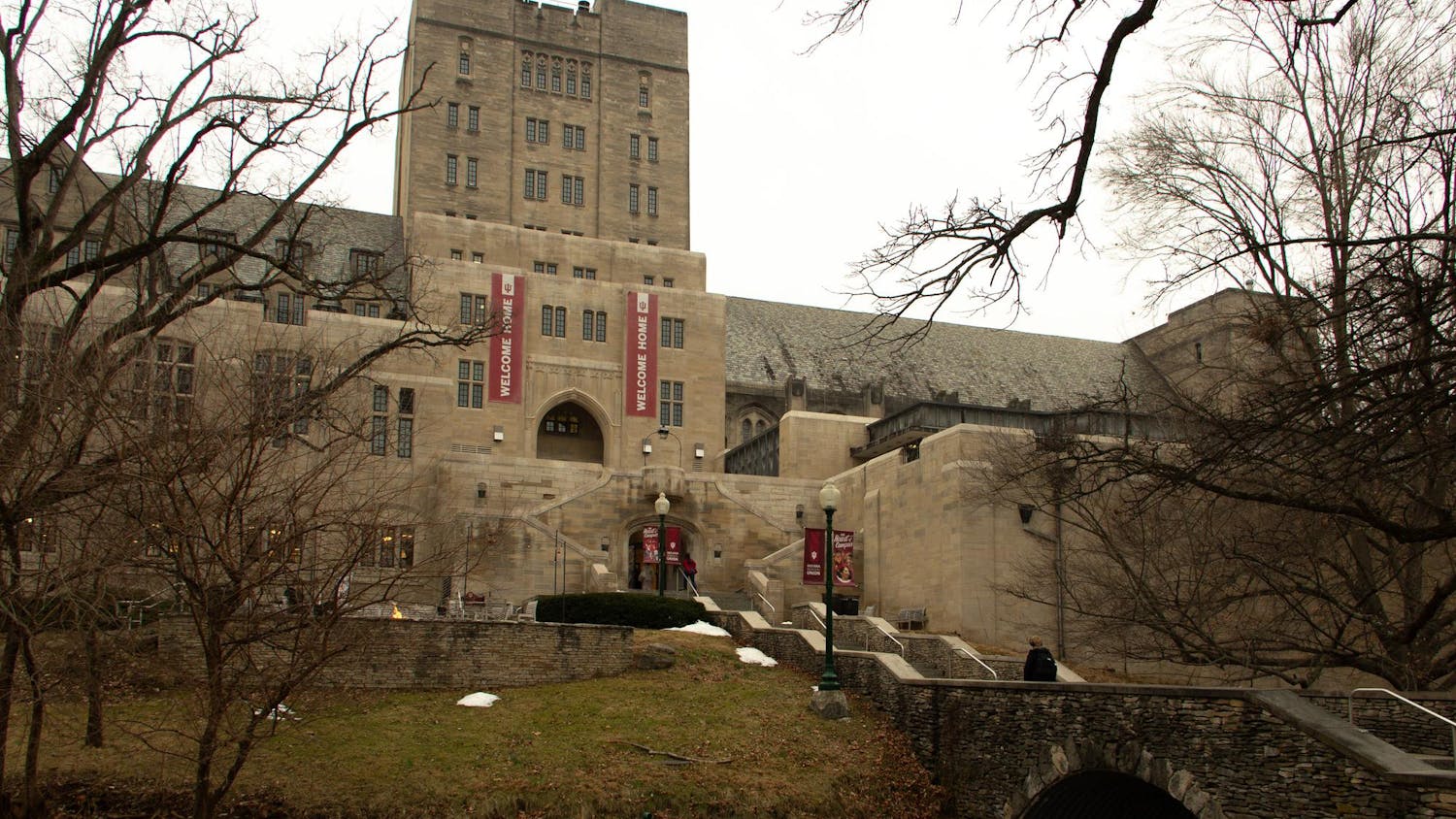The priest still prays about his father, three years later.
The Rev. Matthew Seddon prays every morning when he arrives at the Trinity Episcopal Church in Bloomington, where tinted beams of sunlight shine into the sanctuary through stained glass. He thinks it’s important to pray in the church he serves.
Between that first daily prayer and the time every evening when the window panes stop glowing, he sends prayers up to God in his head.
“I don’t know what happens on God’s end,” he says with a shrug. “But prayer lets God know what’s important to us.”
He prays for the sick and the injured, for loved ones, for people he’s never met, for the grace to forgive those who’ve hurt him and for the people who come to him for guidance. At least once a week, someone asks for help with regrets revolving around a broken relationship.
The first step to fixing it is articulating the mistake that’s been made. Seddon has found people will avoid facing their regrets head on at all costs, even if they’ve already gone so far as to reach out to him.
“Just say it out loud,” he tells them.
But the next step — to ask for forgiveness, or give it, or both — is more difficult. Doing so is the clearest path for the people he helps to forgive themselves, and to fix their relationship with God, he says.
Just over three years ago, Seddon learned the truth for himself: When you miss your chance to fix a broken relationship, it can be the biggest, most unshakeable regret of all.
For many, the COVID-19 vaccines feel like the first signs that life will return to normal. People are reflecting on the past year, and all the years before that, on how to do and be better. For some, post-vaccine life is as scary as it is exciting.
Bloomington high school English teacher Christopher Kupersmith has been thinking a lot about how lonely the pandemic has been for him and his students. As he prepares for his classroom to be more crowded next fall, he’s wondering how he can make sure they’re kind to themselves in spite of any mistakes they’ve made. He remembers doing things he regrets when he was younger and wants them to be more forgiving of themselves than he was.
Local therapist Amy Makice is nervous about restoring her connections with others. The pandemic has put distance between a lot of people, and she and her clients are reflecting on how to be mindful in their relationships going forward. It reminds her of being 21, when one misstep made her feel completely detached from her own life.
Seddon is also nervous for society to move on. The reverend is worried people haven’t learned what they should’ve from the pandemic about valuing one another. He and his congregation are discussing how they can learn from the world’s mistakes and do better. After what happened with his father, he knows how painful it can be when you learn a lesson too late.
A teacher, a therapist, a priest — all people who help others work through mistakes every day. Some might say they are experts in regret.
As the world prepares to move on from the pandemic, many find themselves struggling with regret — regret over a year that feels wasted, regret over relationships lost or broken by isolation, even regret over decisions and missteps made pre-pandemic that they won’t be able to avoid facing any longer. Kupersmith, Makice and Seddon’s expertise could help a lot of us right now.
And even they are still grappling with what they couldn’t change.
It was 2018 when 52-year-old Matt Seddon saw his father alive for the last time.
Thomas Seddon, thin and visibly weak, the mustache he’d had his entire adulthood grey and sparse, sat still in his maroon Laz-E Boy chair. He was quiet.
That evening in the living room of the Seddon household in Tularosa, New Mexico, Matt had at last found a moment alone with his father. The whole family knew the day when Thomas, who was 74, would lose his fight with colorectal cancer was near, so they’d all gathered to be with him.
It was Matt’s last night with the family, as he had to catch an early flight back to his then congregation in Texas the next morning.
Alone with his dad, he saw his last chance.
Though Thomas had always loved his children and been an excellent and beloved teacher, Matt said he was also explosively verbally abusive throughout Matt’s childhood.
He was scared of his father up until the day he died.
Matt now thinks he understands where his father’s anger came from. Thomas’s mother had physically and verbally abused him; he’d not been the first link in the chain of mistreatment.
Matt suspected his father felt remorse for the mistakes he’d made as a parent, but probably didn’t know how to reach out to his son. He also knew at times he’d probably hurt his father, too. He felt a responsibility now to forgive his dad, for both of their peace.
Courage mounting inside him, he looked at his dying father and said the words he’d been wanting to say for years.
“Dad, I want you to know that I forgive you for everything,” he recalls saying. “That none of that stuff matters to me anymore. It doesn’t shape who I am.”
Thomas looked thoughtful. He nodded his head. He said nothing.
And in that moment, Matt came face to face with a truth that still haunts him three years later: He’d been too late.
Matt saw then that he should’ve forgiven his father years ago. But now, in his dying days, there was nothing Thomas could give or say to his son that would change anything. He was too sick. He was almost gone.
A few minutes was never going to fix a troubled relationship spanning 50 years. To expect otherwise, Matt realized, had only been a fantasy. He felt the weight of all he should have done differently, the remorse, pain, guilt — all things he’d recognize in members of his congregation who would call on him for help in the next three years.
When Matt said goodnight and walked down the hallway to bed, he stopped in his tracks.
“This might be the last moment you see your father alive,” he thought. “Remember that.”
He turned around for one last look, and made a note to himself to never forget the image of the man in the chair he’d forgiven too late.
Then he turned back around and went to bed. In the morning, he flew out of El Paso International Airport at 8 a.m.
Thomas Seddon died in his chair the next day.
The therapist still has the remnants of the letter that blew up her life.
Years ago, it felt like a death sentence. Now, shreds of the letter informing her she’d flunked out of her junior year at Depauw University have been cut up and glued into a collage — a sad but empowering homage to failure.
Decades later, Amy Makice can laugh about the biggest mistake of her youth because she’s realized her past has shaped her into the friend, parent and therapist she is today. It’s something she tries to impress onto her clients, that our mistakes often change us for the better.

But the disconnect from others she’s felt this past year reminds her of the disconnect caused by that letter, when losing school led to losing her classmates, her friends, herself. With everyone preparing to go from social distancing to just social, she worries people will have a difficult time reconnecting with each other.
“When you get knocked off your path or your plan, it’s lonely,” she said.
Makice still remembers her despair at 21 years old as she packed up her dorm room in 1990, knowing the official statement from Depauw University telling her not to come back was probably waiting for her at home.
After a year of deteriorating motivation levels and failing grades, Makice was only just starting to be honest with herself. Up until that point, she’d held on to the delusion that somehow, some way, she’d be able to turn her grades around.
“If only I’d studied harder that one night,” she thought. “Maybe it was a tenth of a GPA point difference.”
The worst part was how disconnected she felt from her own life. It was like she didn’t have any say in what happened to her. The pressure to work hard at school and make her parents proud was a burden. Everything was worthless, and so, she decided, was she.
But standing in her dorm room, packing life as she knew it away into boxes, she came across a diary she’d kept as a teenager. She opened it up to an entry she’d written at 15, a page of detailed plans to save up her allowance and spend it on a hot air balloon ride.
“I haven’t been on a hot air balloon yet,” she thought to herself. “I’d like to do that.”
When she got home, she beat the letter there. When it came, it was worse than she anticipated. Her parents didn’t know what to say. She’d disappointed her parents before, but this time was different — this was something that felt unfixable.
She wanted to give up on herself.
But she hadn’t ridden a hot air balloon yet, so she kept going.
A couple weeks later, she went back to Greencastle to visit her boyfriend and bounced between jobs. She found an apartment in town, uncertain of everything except not wanting to live in her parents’ house anymore. The letter told her to get therapy, so she did. Sitting across from someone who listened and cared made her think she might like to help people, too.
Makice said she started stopping by the Depauw admissions offices every week to ask how she could get back into school. Eventually, they let her return part time for one semester, then full time for another year. She graduated just one year overdue.
It wasn’t until she finished graduate school that she finally stopped feeling guilty for what happened. After lingering again in another admissions office, this time at Tulane University, she made her way into graduate school and earned a master’s in social work.
She even got to ride in a hot air balloon, though it made her too nauseous to ever want to do it again.
When her clients need help dealing with regret, she first tries to help them figure out why it’s still getting in their way. Thirty-one years ago, she had to figure that out for herself.
“The behaviors I regret are steeped in fear,” she said. “A fear of not being good enough, a fear of people not liking me, a fear of being wrong. I had to learn how to get out of my own way.”
The teacher listens to every student who comes to him for help.
Before the school removed all unnecessary furniture during quarantine, 49-year-old Christopher Kupersmith kept a padded chair — more comfortable than the hard plastic chairs at each student’s desk — next to his in the corner of his English classroom at Bloomington North High School. It was an open invitation for anyone who might need to talk.
The chair is gone, but the invitation is still there, even while he’s teaching classes mostly over Zoom.
Kupersmith strives to be the teacher kids know they can trust. No problem is too stupid or trivial to bring to him. They got caught cheating on a test? They fought with their boyfriend? He’ll listen. When students used to sit in the confessional chair with their shoulders hunched over as if they would rather just disappear, he knew they’d done something bad.
When students come to him full of shame, it’s more proof that the perspective he’s found with age makes everything better, no matter how painful regret is in the moment.
Like dating that woman who he never should’ve gone near — that was painful.
She was gorgeous. She played music, like he did. She made art. She was outdoorsy and eccentric and just so goddamn cool.
She was also a drug user and could be scary to be around, he said. She would go off on weird tangents he didn’t understand and could get really angry. She was always in survival mode, never finding stability or emotional independence, he said.
He knew the relationship would hurt them both. But he did it anyway.
After it was over, he said he saw exactly what he predicted. She used drugs and alcohol to cope with being on her own, he said.
“Why did I do that?” he would ask himself, wondering why he pursued relationships that were doomed from the start.
The answer came to him in a string of therapy sessions. He, like everyone else, was just trying to find happiness and love.
“Humans almost all the time make the best decision they can make in the moment,” he said. “Regret is tied up in believing you have more control than you do over your life or over your narrative. There are just so many factors that are impacting our lives.”

It took him most of his life to learn that. Now that he’s a teacher, he tries to impress it upon the students who come to him for advice. Though a lot of teachers shy away from being vulnerable with their students, Kupersmith said it’s important to him that he establishes genuine relationships with his.
Especially now. He said his students are more anxious and depressed than ever from the social isolation of the pandemic.
Kupersmith knows what it was like to be caught up in his own mind’s self-punishing story. That’s why the biggest thing he tries to teach them, beyond how to structure a good essay, is that they don’t have to beat themselves up.
“There are a lot of people and students in really dark places right now because they’ve been alone in their thoughts,” he said. “I’ve already started encouraging kids into being careful about whatever stories they are telling themselves about themselves. To be nice to themselves.”
Vaccines mean that finally, the world will get to move on after more than a year of feeling stuck. But regrets that the pandemic either created or brought back to the surface could make it tough to move on from this year.
Even the best of us, the community leaders and advice-givers, the most experienced, battle with regret. Some make peace with it. Some spend their whole lives trying.
The therapist, whose mistakes come back to her in flashes of empathy whenever her clients feel like they’re failing, thinks the purpose of regret is to improve.
“My hope is that it’s to learn and be better people,” Makice said. “To do better.”
The teacher, who listens and nods and offers advice to his students, thinks dwelling on regret at all is unproductive. He thinks fixing mistakes and accepting the factors that contributed to the poor decision is much more valuable.
“We’re not perfect,” Kupersmith said. “It’s more important to try to learn from when you mess up than to think that you won’t mess up. You deserve to be happy on this earth and live a good life.”
And the priest, who remembers his father whenever someone asks him for help mending a damaged relationship, theorizes that regret is life’s way of reminding us how important it is to nurture our connections with each other. It’s how we learn to do so while we still can.
“I hate learning that way,” Seddon said with a laugh. “But that’s where you grow the most as a human. You get closer to what God created you to be. More and more alive.”




